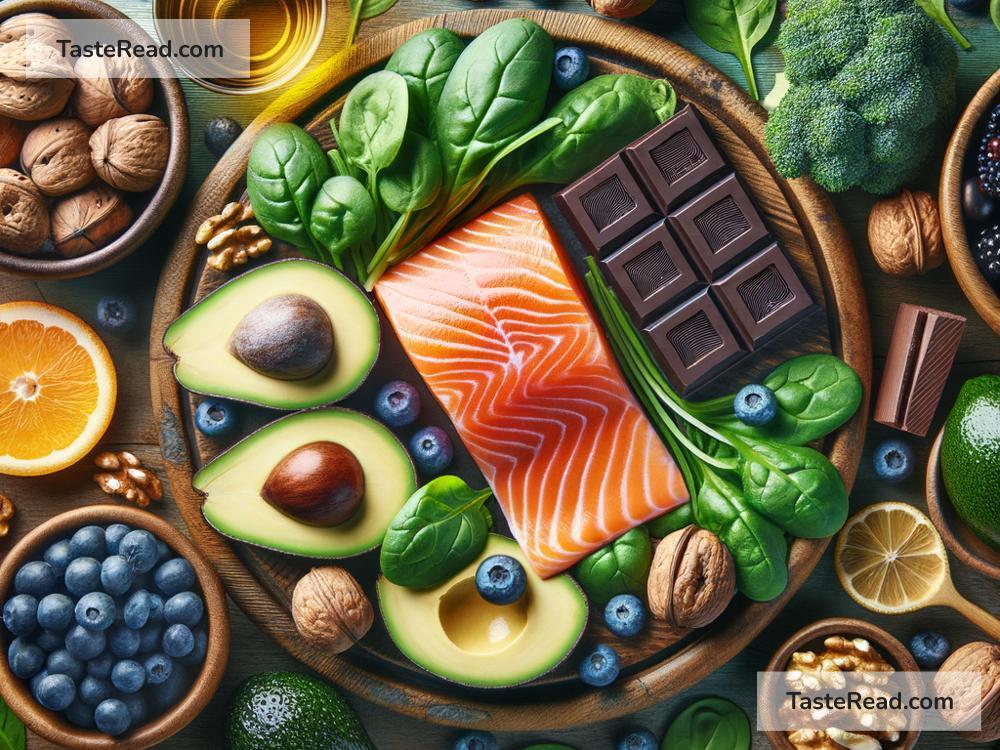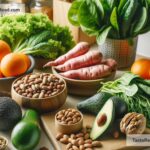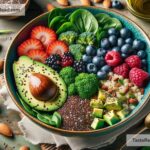Foods That Support Cochlear Function: Nourishing Your Ears for Better Hearing
Your ears work hard every day to help you hear everything around you, from conversations with loved ones to your favorite music. An important part of your hearing system is the cochlea, a tiny, spiral-shaped organ inside your inner ear. It picks up sound waves and sends signals to your brain, allowing you to perceive sounds. Just like any part of your body, the cochlea needs proper nutrition to function at its best. In this blog, we’ll explore foods that support cochlear function and how they can contribute to better hearing health.
Why Nutrition Matters for Hearing Health
Your cochlea is made up of tiny hair cells, nerves, and blood vessels that are responsible for processing sound. These components need oxygen, antioxidants, and essential nutrients to stay healthy. Poor nutrition can lead to issues like oxidative stress, which damages the hair cells in your cochlea. Unlike other parts of your body, these hair cells cannot regenerate once they are damaged. That’s why protecting your cochlea through a nutrient-rich diet is so important.
1. Omega-3 Fatty Acids: For Stronger Hearing Cells
Omega-3 fatty acids are healthy fats that reduce inflammation and boost blood flow throughout your body, including the tiny blood vessels in your ears. Good blood circulation ensures that your cochlea gets the oxygen and nutrients it needs. Studies have even found that omega-3s may help protect against age-related hearing loss.
Foods Rich in Omega-3:
- Fatty fish like salmon, mackerel, and tuna
- Walnuts
- Chia seeds
- Flaxseeds
Try adding a grilled salmon fillet or a chia seed smoothie to your meals to support your hearing.
2. Vitamin C: Protecting Against Free Radicals
Vitamin C is an antioxidant that defends your cells, including those in your cochlea, from free radicals—unstable molecules that can cause damage to your ear’s sensitive hair cells. Consuming enough Vitamin C can help preserve your hearing function over time.
Foods High in Vitamin C:
- Oranges, grapefruits, and lemons
- Strawberries
- Kiwi
- Bell peppers
A refreshing citrus salad or a bell pepper stir-fry can be a flavorful way to boost your Vitamin C levels.
3. Vitamin E: Supporting Blood Flow
Vitamin E is another powerful antioxidant that enhances blood circulation. Your cochlea relies on good blood flow to function properly. By improving oxygen and nutrient delivery to your ears, Vitamin E can play a role in maintaining your hearing health.
Vitamin E-Rich Foods:
- Almonds
- Sunflower seeds
- Spinach
- Avocados
Snack on a handful of almonds or blend spinach and avocado into a green smoothie to give your ears a nutrient-packed boost.
4. Zinc: Strengthening Your Immunity
Zinc is known for its role in boosting your immune system, but it can also help protect your ears. When your immunity is strong, your body can fight off infections more effectively—including ear infections that can harm the cochlea. Zinc also supports inner ear health by stabilizing cell membranes.
Zinc-Rich Foods:
- Oysters (highest source of zinc)
- Beef and chicken
- Pumpkin seeds
- Lentils
Include pumpkin seeds in your trail mix or enjoy lentil soup for a comforting dose of zinc.
5. Magnesium: Protecting Against Noise Damage
Magnesium is a superstar mineral for preventing noise-induced hearing loss. Loud sounds can damage the hair cells in your cochlea, but magnesium helps your ears recover by regulating blood flow and reducing inflammation. It’s especially important for people frequently exposed to loud environments, like concerts or noisy workplaces.
Magnesium-Rich Foods:
- Dark leafy greens like spinach and kale
- Nuts and seeds
- Whole grains (quinoa, brown rice)
- Dark chocolate
For a magnesium boost, enjoy a kale salad topped with sunflower seeds and a piece of dark chocolate for dessert.
6. Folate: Supporting Cellular Health
Folate, also known as Vitamin B9, plays a role in the regeneration and repair of cells, including those in the cochlea. It also helps improve blood flow, ensuring that your ears get the nutrients they need to function efficiently.
Folate-Rich Foods:
- Leafy greens like spinach and romaine lettuce
- Asparagus
- Beans and lentils
- Avocados
Avocado toast or a bean salad can be a simple and tasty way to add folate to your diet.
7. Iron: Promoting Oxygen Flow
Your cochlea relies on oxygen in the blood to work properly, and iron is essential for carrying oxygen throughout your body. Lack of iron can lead to poor blood flow, which may impact your hearing over time.
Iron-Rich Foods:
- Lean meats like beef and chicken
- Spinach
- Legumes like chickpeas and lentils
- Tofu
Incorporate iron-rich dishes like lentil curry or spinach stir-fry into your meals to support cochlear health.
Additional Tips for Hearing Health
While eating the right foods is important, maintaining healthy hearing habits is equally crucial:
– Avoid exposure to loud noises whenever possible.
– Wear ear protection in noisy environments.
– Stay hydrated to support blood circulation.
A balanced diet combined with good hearing practices can go a long way in protecting your ears from damage.
Conclusion
Your cochlea is vital for your ability to hear and enjoy the sounds around you, so taking care of it should be a priority. By adding nutrient-packed foods like fatty fish, citrus fruits, almonds, and spinach to your diet, you can support your hearing health and keep your ears functioning well for years to come. Remember, prevention is always better than cure, and the choices you make today can safeguard your ears tomorrow. Take control of your hearing health—start with your plate!


